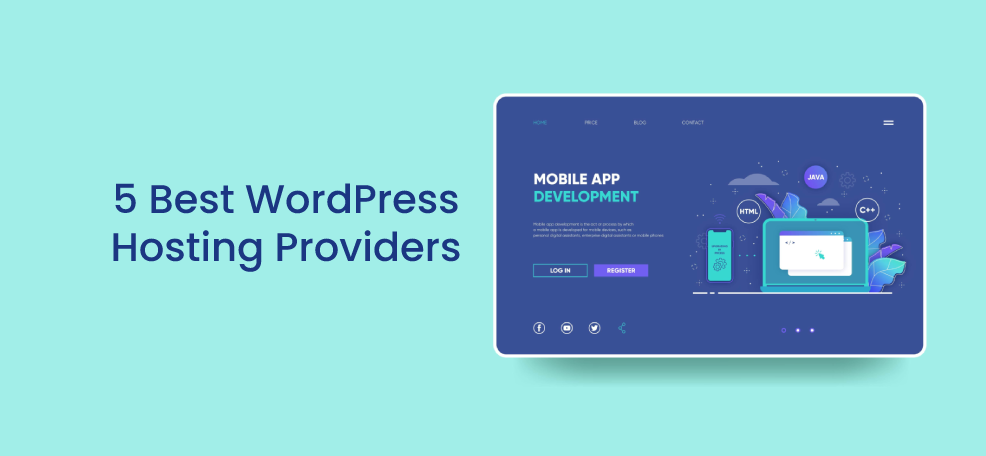Content marketing is an essential part of any successful business strategy, especially for startups. Recent research shows that 84% of organizations have a content marketing strategy, and it is becoming increasingly important for businesses to get up to speed with this powerful tactic.
This complete guide to content marketing for startups will provide entrepreneurs with the knowledge and skills needed to maximize the potential of their content marketing efforts.
This guide will provide an overview of the basics of content marketing and discuss tactics and tools that can be used to create compelling campaigns. It will also examine key metrics for measuring success, help entrepreneurs identify appropriate goals, and provide advice on how to measure ROI from content.
Additionally, it will offer helpful tips for increasing engagement and promoting your message across multiple platforms. Finally, this guide explores some advanced techniques that can be used to optimize your content campaigns and amplify your results.
Content marketing is quickly becoming one of the most important digital strategies available to businesses today. With the right resources and guidance, startup entrepreneurs can easily develop a comprehensive plan that not only meets their objectives but also delivers measurable results.
As such, this guide provides a comprehensive overview of all aspects related to content marketing and offers valuable insights into how startup entrepreneurs can use this powerful tool to effectively promote their products or services.
What is Content Marketing for Startups?
Content marketing for startups is an effective way to target a specific audience and promote products, services, and ideas. It involves creating content that aligns with the startup’s business goals and speaks to the target audience.
A successful content strategy requires research into target audiences, resources for creating compelling content, and consistent publishing and promotion of the content. Content marketing can help startups reach potential customers in their target market, build credibility through thought leadership, and inspire customer loyalty while achieving business goals.
Step By Step Guide To Building Content Marketing for Startup
1.) Identify Your Audience
Creating content that is tailored to your specific audience is an essential piece of a successful content marketing strategy for any startup. It’s not enough to create content for the sake of content; it must be specifically crafted and reach out to the target market to be effective.
Identifying your audience will help you create more relevant content and create an effective content marketing strategy that provides real value for customers who are likely to find it useful. Being aware of trends and demographics as well as understanding what messaging resonates with potential customers will give you insight when crafting your message.
Knowing who you’re creating content for can make all the difference in helping create engagement, building trust, and ultimately driving conversions. There are many ways to identify your target audience. You can conduct market research, analyze your live chat conversations, research your competitors, or leverage website or social media analytics.
2.) Set Goals
Setting goals and developing an actionable plan is an essential element when it comes to building a successful content marketing strategy for any startup.
Defining objectives allows businesses to prioritize blog post creation and reach desired audiences, as well as generate viable opportunities for increased visibility on search engines and reach through effective social media posts.
A well-defined plan is key to helping startups maximize the potential of their content marketing campaigns, by enabling them to focus on what’s important.
Identifying short-term goals makes it easier to measure progress, while long-term objectives provide insight into the type of blog post topics that can become popular over time. By setting the right goals, startups can effectively steer their content marketing efforts in the right direction.
3.) Find A Unique Angle
When building content marketing strategies for a startup, it is important to have a unique angle that differentiates content from other programs. The content must be compelling and provide key content marketing tips to inspire success.
It should align with the values and mission of the business, as well as captivatingly appeal to the target customers’ interests. It is also essential to ensure that content is relevant, valuable, and easily digestible for the target audience.
Having an uncomplicated yet inventive angle for creating content gives startup marketers a greater chance of success in content marketing endeavors.
4.) Choose Content Types
When it comes to creating a documented content marketing strategy for your startup, choosing the right types of content is key. Different content types can help drive organic traffic to your website, increase brand awareness, and even improve conversions.
For best results, begin by outlining your goals and understanding who your target audience is so you can determine which types of content are most likely to appeal to them. After narrowing down the available options, brainstorm ideas for how you will create each type of content, and be sure to document any creative concepts that come up during your brainstorming sessions.
With a clear vision for what you want to achieve and an engaging selection of content types in mind, you’re well on your way towards achieving success with a content marketing strategy for your startup.
Folders, one of Premio’s website plugins can help you to manage the right content type in your content library on your website. Whether you are running a WordPress, Shopify, or Wix site, Folders offer features that make it easy to create and manage content.

With Folders, you can create folders to organize your content, set up role-based permissions to control access to certain types of content, and even add custom fields to tailor the content type to your needs. With these powerful tools at your disposal, you can easily create the perfect content type for your website.
5.) Do Keyword Research
When creating content marketing for a startup, keyword research is an essential part of the process. Being aware of the search volume and keyword difficulty around key terms in your industry helps you to create content that resonates with your target audience, increase organic visibility, and boost content marketing success.
With the right keyword research in place, startups will be able to identify content gaps and highly relevant topics across SERPs that can become quick opportunities for content creation to stay ahead of the competition and rank first in Google. If done correctly, a well-defined keyword strategy will help bring qualified traffic to your content marketing campaigns and build awareness of your brand in a very competitive landscape.
When choosing a target keyword for your website, it is important to cover all possible related topics. This will make your website become an authoritative source of information in Google’s eyes.
To increase the chances of achieving this, using a tool such as Answer the Public can help you come up with new ideas and content related to your chosen keyword.
This can result in increased traffic and improved visibility in search engine results. Not only that, but it can also help you engage with a wide range of audiences, which can lead to further connections and opportunities.
6.) Create a Content Calendar
Planning a content calendar is essential for effective content marketing for startups. By creating a primary and secondary keywords plan, editors can ensure that all text produced follows search engine optimization (SEO) best practices.
Afterward, planners can brainstorm content ideas that encompass newsworthy events, new industry trends or product launches, and other stories related to the startup’s niche.
Through this thorough process, relevant topics of conversation can be anticipated and strategically mapped out into monthly or quarterly editorial calendars. With properly organized content topics in place, any eventual outcome of a content marketing campaign will surely be more reliable and successful.
Trello is a helpful organizational tool that allows content creators to streamline the process of managing a content calendar without any added stress.
With Trello, you can easily keep track of both upcoming and ongoing activities, as well as visualize just how big your workload is.
7.) Measure Performance
When building a great content marketing strategy for a startup, measuring performance is key to understanding the success and reach of your content.
Utilizing analytics can quantify the impact of the specific content format in comparison to each other, allowing you to make informed decisions regarding which pieces should be prioritized as part of your overall content marketing plan.
Additionally, tracking metrics such as engagement rate, click-through rate, and lead generation will give clarity on the effectiveness of individual pieces so that you can create content that resonates with users and is most likely to convert them from casual readers into loyal followers or customers.
Implementing measurement strategies when building content marketing for a startup is crucial for calibrating its growth to maximize its success.
With google search console, you can measure the effectiveness of your website’s content and gain insight into how Google sees and interacts with it. This analytics tool provides detailed data that allows you to monitor visibility, determine which posts are resonating with readers, and establish goals for improved performance.
8.) Reuse & Repurpose Content
When it comes to content marketing for a startup, the best content strategies are often developed from repurposed content. It can be difficult to come up with creative content that suits specific objectives and key performance indicators on a small budget, but content reuse offers several advantages.
Not only is it cost-effective to leverage content already produced, but you can use modifications to make the content better fitted to target audiences or for improvements based on analytics.
Repurposing content also helps maintain content relevance over time and additionally makes it easier for various teams to achieve similar goals through their partnership in creating marketing materials.
As building content marketing for startups requires careful implementation of an effective strategy, reusing and repurposing content created by knowledgeable professionals is crucial to meet key objectives.
Wrapping Up
With content marketing for startups being such a complex task, creating an effective content strategy is essential for any young business. It requires careful understanding of the target audience, content planning, and optimization as well as proper tracking of performance.
By following these best practices, businesses can create content that resonates with their audiences while actively engaging them to increase visibility and generate leads.
Author Bio: Josef Mohamed is a Content Marketer, SEO strategist, and Web Designer who writes about Marketing, Photography, and other related topics. He is the founder of Josefmohamed.com, where he shares his knowledge and expertise.









